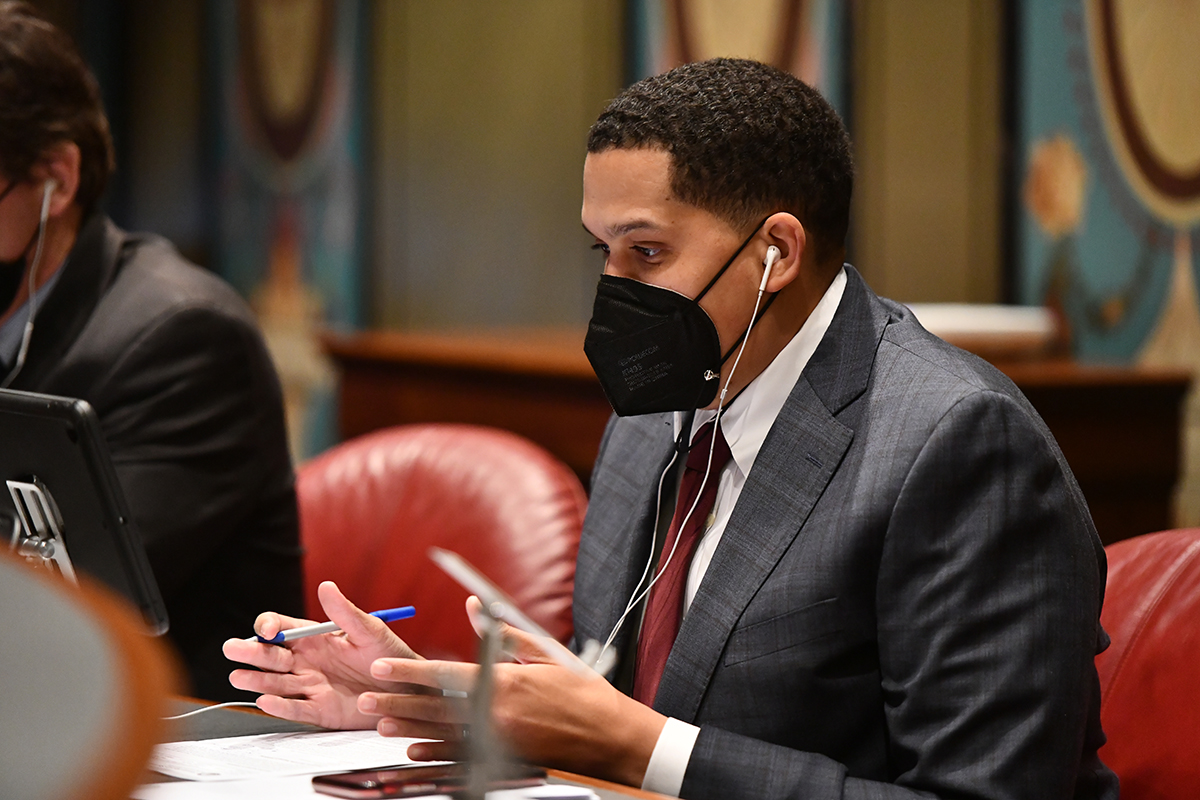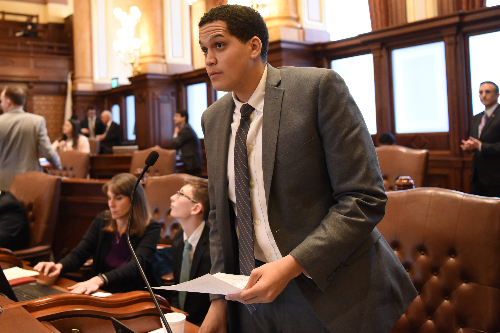Peters condemns overturning Roe v. Wade
- Details
- Category: Press Releases

"This decision is a threat to broader fights for justice everywhere. This is a gateway for the far right to start attacking so many important rights we have today. The Supreme Court’s extremist decision to strip people of their abortion rights is appalling and will not reduce abortions, but only further penalize working class communities especially working class Black and Brown communities.”
“Illinois continues to lead the country when it comes to protecting the reproductive rights of our residents, and I know we will be a welcoming, safe place for people from hostile states that may be seeking an abortion. I am grateful to the organizers and the movement who demanded that Illinois be a leader on reproductive justice, and I am committed to working with them and my colleagues to expand people’s rights in Illinois, not restrict them. I want to be clear that this is the beginning of a much broader movements’ plan to attack marginalized communities and we must not back down from this challenge, but stand up and step out.”
###
Peters-supported measure to protect restaurants becomes law
- Details
- Category: Press Releases

“Small businesses and especially Black and Brown owned businesses have suffered during the last two years,” said Peters (D- Chicago). “We have to ensure that restaurants and bars are able to support themselves and that outside delivery services do not take advantage of small businesses.”
The new law will prohibit third-party delivery services from listing non-partnered restaurants or retailers on their platform. In addition, this law would prohibit a third-party delivery service from posting a menu, registered trademark or any intellectual property of a restaurant, bar or retail establishment without the express written consent of that business.
HB 3205 was signed into law Friday and will take effect January 1, 2023.
Peters-supported measure to investigate victims of gender based violence in Chicago becomes law
- Details
- Category: Press Releases
 Springfield - A task force to investigate missing and murdered women in Chicago will be established after a measure supported by Senator Robert Peters was signed into law.
Springfield - A task force to investigate missing and murdered women in Chicago will be established after a measure supported by Senator Robert Peters was signed into law.
“For too long, the families of Black and Brown women have been left with no answers about the loss of their loved ones,” said Peters (D - Chicago). “Everyone, regardless of zip code, deserves justice, and every community deserves real public safety. This task force will help us provide justice for these families and provide guidance on how to address these cases.”
The new law creates the Task Force on Missing and Murdered Chicago Women, which will examine and report on the systemic causes behind violence that Chicago women and girls experience.
The report will explore methods for tracking and collecting data on violence against Chicago women and girls, policies and institutions that impact violence against them, measures necessary to address and reduce violence against them, and ways to help victims and their families and communities.
Organizations to have expanded access to fentanyl test strips thanks to Peters law
- Details
- Category: Press Releases

“This reform will help save lives,” Peters said. “We still have a long way to go, but removing penalties organizations face when they have access to test strips is a responsible way to address the opioid crisis and to create real public safety for all instead of continuing the misguided policies of the past.”
The new law is designed to expand on the Overdose Prevention and Harm Reduction Act of 2019. This measure will increase the number of persons and professions in the medical community who would not be penalized for possessing a limited residual amount of a controlled substance as part of the drug testing process.
More Articles …
Page 52 of 96





